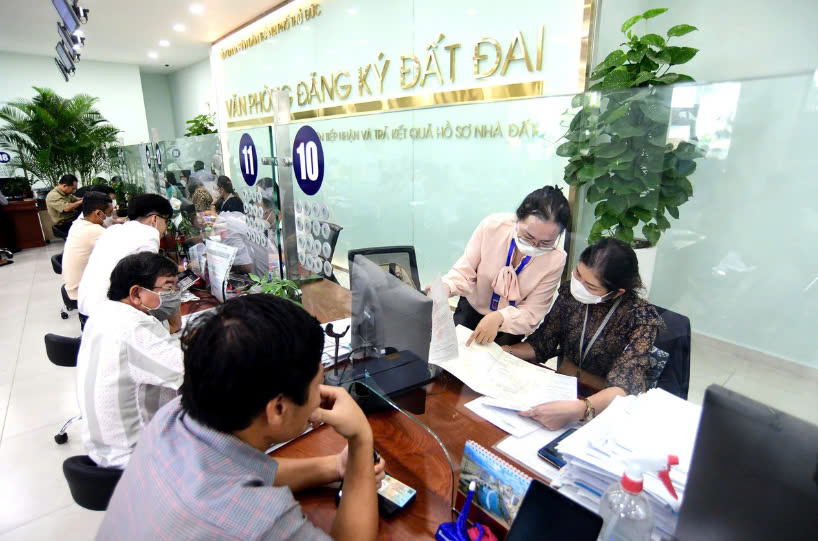Faced with the recent sharp increase in real estate prices, the Ministry of Construction has proposed a taxation method targeting those who own multiple properties. In its report submitted to the Government Office, the Ministry emphasized that speculative investors are one of the main reasons for the volatility in the housing market. The proposal aims to introduce a property tax policy to mitigate the negative impact of real estate speculation and limit short-term buy-and-sell activities for profit.

Accordingly, the Ministry of Construction plans to research and propose policies that would impose taxes on individuals who own multiple properties or have land plots that remain vacant and unused. The Ministry of Finance has also been requested to collaborate in developing specific tax policies for owners of second homes or more, aiming to prevent property hoarding and speculation.
The abnormal surge in real estate prices, especially since early 2024, has caused significant disruptions in the economy. The Ministry of Construction has repeatedly stressed that this excessive price increase not only affects families and individuals with genuine housing needs but also causes instability in the market, hindering sustainable economic development. Notably, recent land auctions in suburban districts around Hanoi have seen winning bids that are many times higher than the starting prices, negatively impacting socio-economic development.
In Hanoi, apartment prices in areas such as Tay Ho, Hai Ba Trung, Ba Đinh, and Hoai Duc have also skyrocketed compared to the same period last year. According to the Ministry of Construction's second-quarter report, apartment prices have risen by around 5-6.5% since the beginning of the year, while prices in some older, well-established projects have increased by as much as 28-33%. Remarkably, even prices in some resettlement areas have surged by 20% year-on-year, raising concerns. Additionally, some newly launched apartment projects in Hanoi are now priced at up to 55 million VND per square meter.
Although the rate of apartment price increases slowed toward the end of the second quarter, the market still faces a decline in transactions. The report indicates that the number of apartment and individual house transactions has decreased by 30% since the beginning of the year, partly due to high real estate prices and buyers adopting a wait-and-see attitude.
The report also highlights the role of speculative groups and real estate brokers in driving up property prices. Many land auctions have been manipulated by these groups to make quick profits. Specifically, these speculative groups often participate in auctions and then immediately sell the land at higher prices, creating a speculative cycle that drives up land prices in surrounding areas. This negatively affects the real estate market and those with genuine housing needs.
Not only speculators, but real estate brokerage firms and agents have also contributed significantly to inflating housing prices. Brokerage firms typically receive commissions from developers, but in many cases, brokers and agents increase the selling prices themselves to make additional profits. The Ministry of Construction cites an example from a low-rise project in Hung Yen, where customers had to pay a considerable markup to brokers on top of the developer's original price. Although these markups tend to decrease when the market cools down, they still represent a burden for buyers.
Furthermore, speculative activities are not limited to auctioned land plots but also occur in the secondary housing market. Many brokers often use a strategy of placing deposits to buy houses or land from sellers at below-market prices and then resell them at a higher price, with a price difference of up to 10-15%. This pushes real estate prices higher, making the market increasingly inaccessible to those with real housing needs.
It should also be noted that some developers have contributed to the rise in property prices by setting unreasonably high asking prices, far exceeding the average profit margins. In areas with limited project competition, these developers take advantage of the opportunity to raise prices, further increasing pressure on the entire market.
In this context, the Ministry of Construction believes that imposing taxes on second homes or vacant properties is a necessary measure to curb speculation and cool the market. However, these tax policies are still in the research phase and have not been officially approved. Along with the Ministry of Construction, the Ministry of Finance has also outlined plans to include the draft Real Estate Tax Law in the legislative program, which is expected to be submitted to the National Assembly for consideration in October 2024. This could be a critical step in controlling the real estate market and protecting genuine homebuyers.
Hotline
Hotline